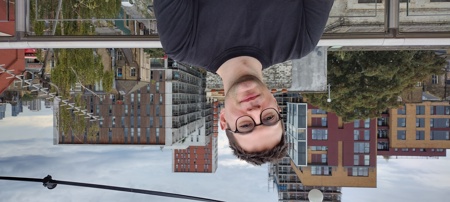
Adam Bychawski
openDemocracy Ltd
Adam’s health reporting has caught ministers telling falsehoods about new NHS centres, exposed businessmen getting rich off supplying unusable PPE, and highlighted how eating disorder patients have been failed by the government. Adam faced months of legal threats to break a story about a company that supplied £27m worth of PPE during the pandemic which was unusable. This was a huge waste of public money. Without our story, which took months of FOI work and involved navigating a protracted series of legal threats from the company’s lawyers, the company would have escaped scrutiny and may have lined up more public contracts. Not only did openDemocracy publish proof that the PPE the company supplied wasn’t usable – despite their claims to the contrary – it showed how the owner was now lavishly spending that public money on mansions and even a private bowling alley.
Adam’s work has also held the government to account on its claims about tackling the NHS waiting list. In January, he revealed using FOI work that the ‘elective recovery taskforce’ set up by the government to advise the NHS on reducing the backlog was stuffed with CEOs from private health companies. No one else had thought to dig into the membership of the group, with numerous papers repeating the government’s claim to be helping the health service tackle its wait list. Labour tabled a parliamentary question demanding greater transparency in response and the Today programme questioned NHS executives about openDemocracy’s reporting when the taskforce published its recommendations. And in July, ministers said they had launched 114 new diagnostic centres to reduce waiting times for tests. Adam cross-checked every single centre by either calling the address of the centre or asking the local NHS trust. He confirmed that dozens weren’t open yet. Some centres which the government claimed were already live weren’t actually opening until 2025. No other journalist had questioned the government’s press release, despite it having made misleading claims about the number of new hospitals it was building in the past.
Lastly, Adam’s health reporting highlighted how the government has failed people with eating disorders. Despite warnings from the government’s own health watchdog about unnecessary deaths from eating disorders, there has been little progress in expanding support.
This was a subject that rarely gets the attention it deserves in the media, despite there being more than a million people estimated to have an eating disorder in the UK.
Adam spoke to campaigners, clinicians and patients who told him that the service was so underfunded that nurses were having to rely on security guards in order to restrain very ill patients. This was not an easy story to report on and required building trust with people with eating disorder before they would talk about their experiences.
Adam received several messages from people with eating disorders following the publication of the story, who were pleased to see the issues he reported on being raised in the media.